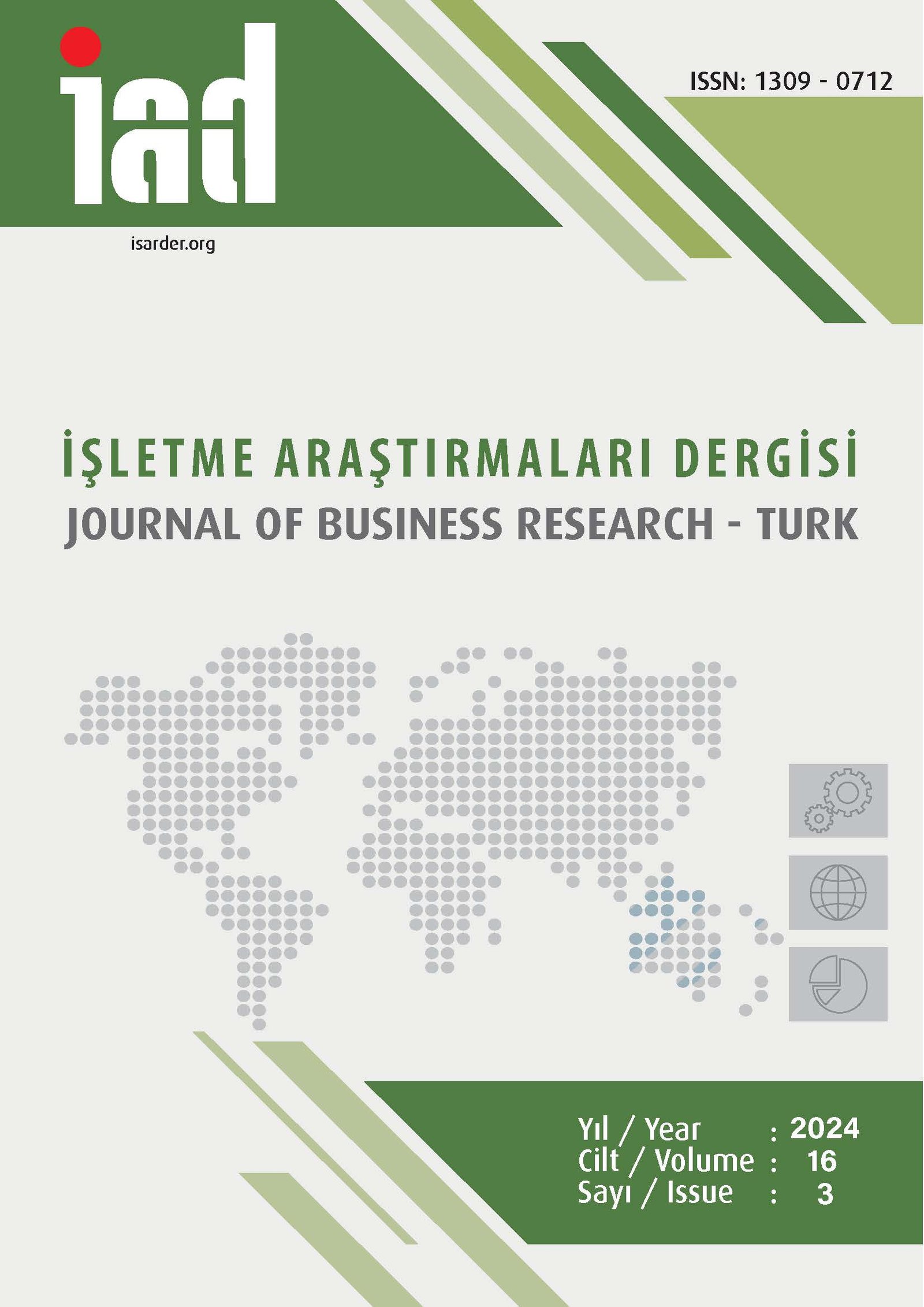Innovation in Family Businesses: A Bibliometric Analysis
DOI:
https://doi.org/10.20491/isarder.2024.1885Anahtar Kelimeler:
Bibliometric Analysis- Family BusinessesÖzet
Purpose – This research aims to find out the general movement and gaps in the innovation studies in family businesses by connecting them with studies in mainstream innovation literature. Design/methodology/approach – In this research, 926 documents published in 283 journals in the Web of Science database between 1997 and 2022 in the field of innovation in family businesses were analyzed. Bibliographic coupling analysis, co-citation analysis, co-word analysis, and trend analysis were carried out to evaluate the intellectual and conceptual structure of the field. Trends in the relevant literature were visually mapped by identifying journals, authors, research topics, and connections between them. Findings – According to the results of the intellectual structure analysis, family participation, family culture, family ownership, and socio-economic wealth issues come to the fore. Co-citation analysis findings indicate that the concepts of performance and sustainability, which have a strong relationship with entrepreneurship, will be among the important research topics in the near future. Discussion – The desire of family businesses to protect their assets causes them to avoid long-term risky innovation projects and their innovation speed to decrease. Family businesses tend to rely on external sources of knowledge and technology, focusing on incremental rather than radical innovation. This tendency stems from the typical organizational climate of low formality and risk aversion in determining strategic choices and functional organizational structures with high decision-making autonomy. Intergenerational innovation should be focused on to create innovation competencies in future generations.
İndir
Yayınlanmış
Nasıl Atıf Yapılır
Sayı
Bölüm
Lisans

Bu çalışma Creative Commons Attribution-NoDerivatives 4.0 International License ile lisanslanmıştır.





